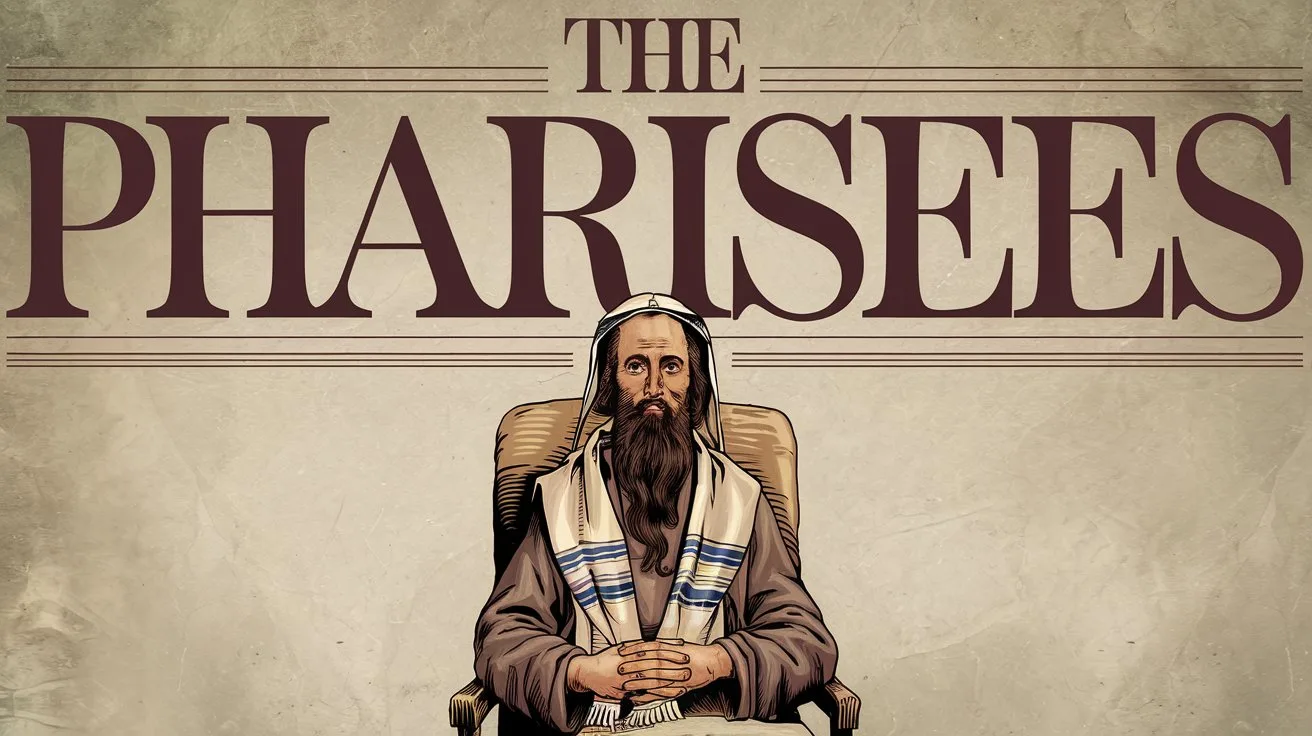Peter, originally named Simon, stands as one of the most compelling figures in the New Testament. His life is marked by extraordinary highs and painful lows, zeal for Christ that often led to impulsive actions, and a redemption story that epitomizes the grace of God. Jesus nicknamed him Peter, meaning “rock,” and declared, “You are Peter, and on this rock I will build My church, and the gates of Hades shall not prevail against it” (Matthew 16:18). However, the Greek words here reveal a distinction: Peter (Petros) is a “little rock,” but the foundation of the Church is the Petra, the massive boulder of Christ Himself (1 Corinthians 3:11). This critical difference underscores Peter’s role as a key leader, not the ultimate foundation.
Let’s take an in-depth look at Peter’s life, examining his calling, his over-eagerness and failures, his unique relationship with Christ, and his transformation into a fearless apostle. Through Peter, we find profound lessons for our walk with God, the power of grace, and the sufficiency of Christ as our foundation.
The Calling of Peter: A Fisherman Transformed
We first read of Peter in the humble surroundings of Galilee, where he and his brother Andrew worked as fishermen. Andrew introduced Peter to Jesus, declaring, “We have found the Messiah” (John 1:41). Later, by the Sea of Galilee, Jesus called Peter with the words, “Follow Me, and I will make you fishers of men” (Matthew 4:19). Without hesitation, Peter left his livelihood to follow Jesus, demonstrating the kind of impulsive, wholehearted devotion that would characterize much of his journey.
From the outset, Peter showed a deep hunger for God and an eagerness to serve. This willingness made him one of Jesus’ inner circle, along with James and John. Peter’s calling reminds us that God often uses the least likely people to accomplish His purposes. Paul echoes this sentiment in 1 Corinthians 1:27, “God has chosen the foolish things of the world to put to shame the wise, and God has chosen the weak things of the world to put to shame the things which are mighty.”
Peter’s Over-Eagerness and Impulsive Nature
Peter’s zeal for Christ was unmatched, but it often led to impulsive actions that revealed his imperfect understanding.
Walking on Water
One of Peter’s most famous moments occurred during a storm when Jesus walked on the sea toward the disciples. Peter boldly said, “Lord, if it is You, command me to come to You on the water” (Matthew 14:28). Jesus invited him to step out of the boat, and for a brief moment, Peter walked on water. However, when he saw the wind and waves, he became afraid and began to sink, crying out, “Lord, save me!” (Matthew 14:30). Jesus immediately caught him and said, “O you of little faith, why did you doubt?” (Matthew 14:31).
This incident reveals both Peter’s bold faith and his susceptibility to fear. It reminds us that our walk with Christ requires keeping our eyes on Him, not our circumstances.
The Mount of Transfiguration
Another example of Peter’s over-eagerness occurred on the Mount of Transfiguration. Peter, along with James and John, witnessed Jesus’ divine glory as He spoke with Moses and Elijah. Overwhelmed by the moment, Peter suggested, “Lord, it is good for us to be here; if You wish, let us make here three tabernacles: one for You, one for Moses, and one for Elijah” (Matthew 17:4). While Peter’s intentions were to honor the occasion, his suggestion betrayed a misunderstanding of Jesus’ supremacy. God’s voice interrupted, saying, “This is My beloved Son, in whom I am well pleased. Hear Him!” (Matthew 17:5). Peter needed to learn that Jesus alone is worthy of worship and that no one, not even Moses or Elijah, could rival His glory.
Cutting Off Malchus’ Ear
In the Garden of Gethsemane, Peter once again acted impulsively, this time with a sword. When soldiers came to arrest Jesus, Peter drew his weapon and struck Malchus, the servant of the high priest, cutting off his ear. Jesus rebuked him, saying, “Put your sword in its place, for all who take the sword will perish by the sword” (Matthew 26:52). Jesus then healed Malchus, showing His submission to the Father’s will. Peter’s rash action revealed his misunderstanding of Jesus’ mission and the nature of His Kingdom, which is not advanced by force but by sacrificial love.
The Rock and the Foundation: A Distinction
Peter’s confession of faith in Matthew 16:16, “You are the Christ, the Son of the living God,” was a pivotal moment in his journey. Jesus responded, “Blessed are you, Simon Bar-Jonah… and I also say to you that you are Peter, and on this rock I will build My church” (Matthew 16:17-18). Here, Jesus used a wordplay between Petros (Peter, the little rock) and Petra (the massive rock or boulder). While Peter was a key figure in the early Church, the true foundation was Christ Himself, as affirmed in 1 Corinthians 3:11: “For no other foundation can anyone lay than that which is laid, which is Jesus Christ.”
Peter’s role as a leader and pillar of the early Church (Galatians 2:9) was significant, but he always pointed others to Christ, the ultimate cornerstone (Ephesians 2:20).
Peter’s Failures and Redemption
Denial of Christ
One of Peter’s most painful failures came during Jesus’ trial. Despite boldly declaring, “Even if I have to die with You, I will not deny You!” (Matthew 26:35), Peter denied knowing Jesus three times before the rooster crowed (Matthew 26:69-75). This moment of weakness was a devastating reminder of Peter’s humanity and the limits of his courage.
Restoration by Jesus
After His resurrection, Jesus restored Peter in a tender and profound moment by the Sea of Tiberias. Three times, Jesus asked, “Simon, son of Jonah, do you love Me?” (John 21:15-17), mirroring Peter’s three denials. However, a closer look at the original Greek reveals a deeper layer to this conversation.
In His first two questions, Jesus used the Greek word agapao, which denotes a selfless, unconditional, sacrificial love. Each time, Peter responded with phileo, a word signifying brotherly love or deep affection, a love that does not reach the fullness of agapao. It’s as though Peter, still humbled by his previous failure, hesitated to claim the highest form of love for Christ. He acknowledged the sincerity of his love but stopped short of overstating it.
On the third question, Jesus shifted His word to phileo, meeting Peter where he was. This shift carried profound significance. By using phileo, Jesus affirmed the reality of Peter’s love and demonstrated that He accepted Peter’s current state. The interaction wasn’t about Peter’s inadequacy but about Jesus’ grace, restoration, and commissioning.
Each time Peter affirmed his love, Jesus responded with a charge: “Feed My lambs,” “Tend My sheep,” “Feed My sheep.” This threefold commission emphasized Peter’s role as a shepherd of God’s people, caring for their spiritual well-being and leading them in the truth of Christ.
This moment encapsulates the heart of Jesus’ ministry: meeting us where we are and calling us to where we need to be. It was not only a moment of restoration for Peter but a powerful demonstration of Christ’s grace, love, and purpose for those who follow Him.
Peter’s Transformation: A Fearless Leader
After the outpouring of the Holy Spirit at Pentecost, Peter became a fearless and powerful leader. His first sermon led 3,000 people to Christ (Acts 2:41). He performed miracles, such as healing the lame man at the temple gate (Acts 3:6-8), and boldly confronted religious authorities, declaring, “We ought to obey God rather than men” (Acts 5:29).
Peter’s vision in Acts 10, where God showed him a sheet filled with unclean animals, marked a turning point in his ministry. This vision revealed that the gospel was for all people, Jew and Gentile alike, breaking down the barriers of prejudice and tradition.
Peter’s Legacy and the Church’s Foundation
While tradition holds that Peter was martyred in Rome, crucified upside down at his own request, his legacy endures in the Church he helped establish. His life is a powerful reminder that God uses imperfect people to accomplish His purposes. The Church’s foundation is Christ, but God raises up faithful servants like Peter to build upon that foundation.
My Final Thoughts
Peter’s life is a profound testament to the power of God’s grace and the transformative work of the Holy Spirit. His impulsive nature and failures remind us of our own weaknesses, yet his restoration and bold leadership demonstrate what God can do through those who yield to Him. As we reflect on Peter’s journey, may we be inspired to trust Christ as our firm foundation, grow in humility, and embrace our role in advancing His Kingdom.












